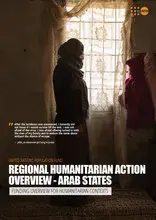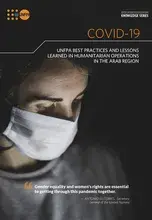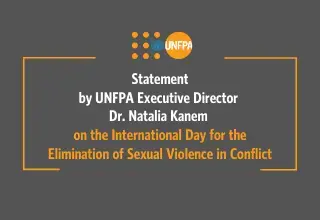Shirin was only five years old when her mother passed away and her father remarried. A resident of Qamishli in Syria, Shirin’s stepmother had mistreated her throughout her life, subjecting her to physical and emotional abuse that made her living situation seem impossible.
As a result, she believed that marriage — as early as possible —was the only way to escape the prison in which she lived, even it meant accepting an arranged marriage at the age of 16.
“Can you imagine growing up without the love, the tenderness and the compassion of a mother? I never felt loved. My step-mother always mistreated me and favourited my stepbrother and stepsister; she never gave me the attention I needed as a child,” explains Shirin. “I was only 16 when my aunt approached me with a marriage proposal from a waiter who works close to our house. Accepting an arranged marriage seemed to be the wise choice at the time.”
The young bride continued her education and obtained her diploma in nursing. A few years later, she found herself a mother of three children, struggling to survive on what little income her husband made as a waiter. The added insult to her injury was that her husband suffered from a serious gambling problem that eventually swallowed most of his earnings, and Shirin eventually found herself the sole provider for her children.
“I was doing just fine, but life had a different plan for me. My youngest son was born with anaemia and at the age of five, he suffered from heart failure. Money became short and we could not provide him with the proper treatment and afford the surgery,” says Shirin, tears rolling down her face. “Eventually, he died.”
Life did go on, but Shirin was never truly able to recover from her loss. As she puts it, “I lost my son and a part of my happiness and will to live, yet, I had to be strong for my other children. They needed me.”
In 2011, the conflict in Syria erupted. The family tried to stay in the country for as long as they could, but when the violence intensified in 2015 they found themselves seeking refuge in Domiz 2 camp in the Kurdistan Region of Iraq.
I was doing just fine, but life had a different plan for me!
Domiz 2 camp is home to close to 8,700 Syrian refugees who fled the war seeking a haven. In the camp, UNFPA operates one maternity unit, a reproductive health clinic, a youth centre and a women’s social centre. Shirin’s field expertise helped her land a job at the reproductive health clinic, supporting the RH and family planning services provided to the camp’s residents.
“Ever since my son’s death, I’ve been determined to do anything in my power to keep mothers and their children together,” explains Shirin.
“The fact that I found a job at the clinic allows me to fulfil my calling and contribute towards ending maternity death and ensuring safe deliveries. This job has brought me a lot of pride and joy, and I feel my son would also be proud of me and the work I do,” she added.
In refugee camps, UNFPA ensures that — in addition to normal and assisted deliveries — antenatal, postnatal, and emergency obstetric referral services are available. The clinics in place are fully staffed with a gynaecologist, a midwife and a nurse, while a delivery room has been established in the biggest refugee camp in the Kurdistan Region.
**********
UNFPA, the United Nations Population Fund, delivers a world where every pregnancy is wanted, every childbirth is safe and every young person’s potential is fulfilled.
For more information or media inquiries please contact: Salwa Moussa, Communications Analyst, smoussa@unfpa.org





